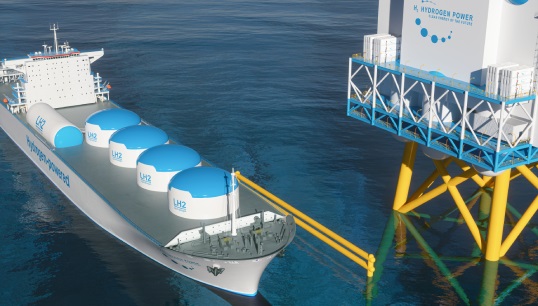There are numerous options in the mix to replace heavy fuel oil and diesel, and opinion is divided on which of these new fuels – also known as 'future fuels' or 'alternative fuels' – will end up on top. Lucy Chapman explores the pros and cons of some of the main contenders
Hydrogen
Pros
|
Cons
|
| Does not release greenhouse gases when burnt as fuel - only water vapour and oxygen |
Highly explosive if not stored and handled correctly |
| Already a global hydrogen market |
Combustion can lead to the thermal formation of nitrogen oxides (NOx) |
| Can be stored in large amounts for long periods of time |
Low energy density increases storage needs |
| Only releases water vapour and oxygen as by-products. Easy to fit existing ships with hydrogen fuel cells |
Producing hydrogen from renewable sources is expensive |
Ammonia
Pros
|
Cons
|
| Does not release greenhouse gases when burnt as fuel |
Most ammonia is produced from natural gas - a fossil fuel |
| Green ammonia causes no greenhouse gases when burnt as fuel |
Highly toxic - even small volumes in the air can be fatal |
| Easy to store and transport |
Combustion can produce NOx emissions |
| Low flammability |
Highly corrosive |
Methanol biofuel
Pros
|
Cons
|
| Low NOx, sulphur oxide (SOx) and particulate emissions |
Releases some greenhouse gas emissions when burnt as fuel |
| High energy density requiring less storage space |
Most methanol is produced from natural gas, a fossil fuel |
| Compatible with most engine types |
Lower energy density than traditional marine fuels |
| Liquid, easier to handle |
Can be corrosive and toxic |
Wind propulsion
Pros
|
Cons
|
| Beneficial for long crossings |
Noise pollution |
| Can be combined with other renewable sources |
Wind conditions can be variable and unpredictable |
| Zero emissions |
Fitting vessels with wind propulsion systems can require significant investment upfront |
| Sustainable |
Occupies a lot of space |
Shore-charged batteries
Pros
|
Cons
|
| Zero emissions (if electricity for charging is produced through green technology) |
Still not efficient - cannot store enough energy for their size and weight |
| Practical for vessels that dock often |
Emissions from charging power produced using fossil fuels |
| Can be charged using electricity from renewable sources |
Requires collaboration between ports, shipping companies and utility providers |
| Reduced noise pollution |
Impractical for vessels that do not dock often |
Liquefied petroleum gas (LPG)
Pros
|
Cons
|
| Easy storage |
Not carbon free |
| Produces less SOx, NOx and CO2 than traditional marine fuels |
Flammable and potentially hazardous |
| Widely available globally |
Fluctuating prices |
| Efficient and reliable |
Lower energy density than traditional marine fuels |
Liquefied natural gas (LNG)
Pros
|
Cons
|
| Reduces NOx emissions by up to 80% and virtually eliminates SOx particles compared with traditional marine fuels |
Still a fossil fuel that emits CO2 and sometimes unburnt methane during combustion |
| Non-toxic and non-corrosive |
Lower energy density than traditional marine fuels |
| LNG spills cause little marine environmental damage unless ignited before evaporation can occur |
Converts to flammable gas when in contact with air |
| Widely available globally |
Stored at a very low temperature and complex to handle |

